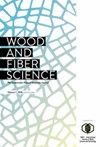THE GLOBAL WOOD SPECIES PRIORITY LIST: A LIVING DATABASE OF TREE SPECIES MOST AT RISK FOR ILLEGAL LOGGING, UNSUSTAINABLE DEFORESTATION, AND HIGH RATES OF TRADE GLOBALLY
IF 0.8
4区 工程技术
Q3 FORESTRY
引用次数: 0
Abstract
. The illegal timber trade is one of the most impactful natural wildlife crimes, affecting the live-lihood of local communities, natural resource availability, and the associated carbon storage and biodiversity. Many timber species are highly sought after and are at risk of exhaustion and subsequent extinction. Although several initiatives exist to indicate tree species risk and conservation status, there is no single resource, or prioritized list, that quali fi es the most high-risk and highly traded species across the globe. Organizations end up creating their own priority species lists to meet this lack of aggregated information, requiring hours of independent research and resulting in the recreation of similar lists. To provide a one-stop-shop for similar initiatives, World Forest ID developed the Global Priority Wood Species List (GPWSL) to synthesize existing information. Currently, the GPWSL harbors 270 species most at risk for illegal logging, unsustainable deforestation, and high rates of international trade. The database contains relevant information on each species; such as natural distribution, conservation listings, and countries of import. Here, we present the list, the methods used in its development, and its potential applications for the wood industry as a whole.全球木材物种优先名单:一个关于全球最易遭受非法砍伐、不可持续森林砍伐和高贸易率风险的树木物种的活数据库
非法木材贸易是最具影响力的自然野生动物犯罪之一,影响了当地社区的生活、自然资源的可用性以及相关的碳储存和生物多样性。许多木材物种备受追捧,面临枯竭和随后灭绝的风险。尽管有一些举措表明了树种的风险和保护状况,但没有一种资源或优先名单能够证明全球风险最高、交易量最高的物种。各组织最终创建了自己的优先物种名单,以满足汇总信息的缺乏,需要数小时的独立研究,并重新创建类似的名单。为了为类似举措提供一站式服务,世界森林ID制定了全球优先木材物种清单(GPWSL),以综合现有信息。目前,GPWSL拥有270个物种,这些物种面临着非法砍伐、不可持续的森林砍伐和高国际贸易率的最大风险。该数据库包含每个物种的相关信息;如自然分布、保护名录和进口国。在这里,我们介绍了该列表、开发中使用的方法以及它在整个木材行业的潜在应用。
本文章由计算机程序翻译,如有差异,请以英文原文为准。
求助全文
约1分钟内获得全文
求助全文
来源期刊

Wood and Fiber Science
工程技术-材料科学:纺织
CiteScore
7.50
自引率
0.00%
发文量
23
审稿时长
>12 weeks
期刊介绍:
W&FS SCIENTIFIC ARTICLES INCLUDE THESE TOPIC AREAS:
-Wood and Lignocellulosic Materials-
Biomaterials-
Timber Structures and Engineering-
Biology-
Nano-technology-
Natural Fiber Composites-
Timber Treatment and Harvesting-
Botany-
Mycology-
Adhesives and Bioresins-
Business Management and Marketing-
Operations Research.
SWST members have access to all full-text electronic versions of current and past Wood and Fiber Science issues.
 求助内容:
求助内容: 应助结果提醒方式:
应助结果提醒方式:


